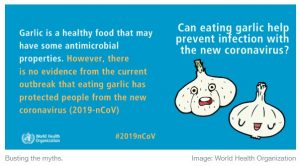Fighting the Info-Demic: The Role of Health Literacy in COVID-19

Source: Gharib M. (NPR)
Author: Tara Chen
Disease outbreaks provide a measurement on the readiness of everyday health care systems. Reviewing the situation of the recent outbreak, COVID-19, health literacy has the potential role in supporting public health goals. Currently, the pandemic has caused increasing difficulty in navigating the system, and the uncertainty has resulted in a health literacy crisis. There is an urgent call for clear, coordinated communication from trusted sources. The importance of health literacy is a concept that needs to be addressed in the development of best practices and actions for next steps for COVID-19.
Health literacy has a significant impact on health outcomes and the use of health services. Defined in many ways, a common definition sourced by the Calgary Charter on Health Literacy states “Health literacy is the use of a wide range of skills that improve the ability of people to act on information in order to live healthier lives” [1]. People with low health literacy skills are at risk for limited capacity and competence in related to public health outbreak controls. COVID-19 communication strategies have primarily focused on the digital age- impacting an extension of health literacy, otherwise known as “digital health literacy” [2]. Complexities of digital health literacy emphasizes education and training for all is needed to address the impacts of changing commercial, technological and policy determinants [2]. Without a health literacy lens in disease outbreak planning, accidental misinformation and deliberate disinformation quickly spreads. The World Health Organization has already called the spread of false information on the coronavirus an “infodemic”, stating the battle against fake news is likely to be as long as the virus [3].
Individuals with limited health literacy may follow the social gradient and be impacted by the “herd mentality”, where people are influenced by their peers/society to adopt certain behaviors that are largely emotional, rather than rational [4]. A surge of public anxiety has led to panic buying of food supplies, hygiene and sanitation products, and toilet paper [4]. Social media feeds are filled with individuals sharing COVID-19 information – focused on sharing the information “quickly” rather than checking whether the source of information is credible or not. An unpublished report from the US Global Engagement Center found around 2 million tweets contained conspiracy theories about the coronavirus during a three-week period in January and February [3]. With Europe emerging as the center of the pandemic, it is without a doubt that the infodemic has spread [5].
 Actors on political, community and organizational levels must work together to integrate health literacy in their national emergency preparedness plans for the COVID-19. The WHO is working with social media leaders: Facebook, Twitter, Tencent, Pinterest and TikTok to track the spread of information and bust the “myths” – emphasizing the importance of cross-sectoral participation [3]. Countries are at a critical point in their public health campaigns to address COVID-19, and health literacy can help address stigmatization and presumptions caused by insufficient communication. The creation of responsive settings and enabling environments during the official statement by WHO’s declaration of a pandemic [6] need to be health literacy friendly. With further implementations such as self-quarantine, school closures, and nationwide lockdowns, the spread of information will continue to rely heavily on digital sources. Continuous dissemination of information using plain language for all walks of life and considerations to culture is essential to extinguish public fears.
Actors on political, community and organizational levels must work together to integrate health literacy in their national emergency preparedness plans for the COVID-19. The WHO is working with social media leaders: Facebook, Twitter, Tencent, Pinterest and TikTok to track the spread of information and bust the “myths” – emphasizing the importance of cross-sectoral participation [3]. Countries are at a critical point in their public health campaigns to address COVID-19, and health literacy can help address stigmatization and presumptions caused by insufficient communication. The creation of responsive settings and enabling environments during the official statement by WHO’s declaration of a pandemic [6] need to be health literacy friendly. With further implementations such as self-quarantine, school closures, and nationwide lockdowns, the spread of information will continue to rely heavily on digital sources. Continuous dissemination of information using plain language for all walks of life and considerations to culture is essential to extinguish public fears.
Knowledge is power. Fight the infodemic!
Author: Tara Chen*
*Tara is an EuroPubHealth+ Alumni at the Jagiellonian University’s MC Institute of Public Health. She is currently working as the Project Manager for the Global Health Literacy Summit 2020 at E-DA Hospital in Kaohsiung, Taiwan
Blog Zdrowia Publicznego, red. M. Zabdyr-Jamróz, Instytut Zdrowia Publicznego UJ CM, Kraków: 23 marca 2020
List of Reliable Resources for COVID-19 and Health Literacy:
References:
- Gharib M. Just for Kids: A comic exploring the new coronavirus. Goats and Soda, The Coronavirus Crisis.
- Coleman, C, Kurtz-Rossi, S, McKinney, J. (2009) Calgary Charter on Health Literacy. Centre for Literacy.
- (2019). Digital health literacy: how new skills can help improve health, equity and sustainability. EuroHealthNet.
- Charlton, E. (2020) How experts are fighting the Coronavrius ‘infodemic’. World Economic Forum.
- Lufkin, B. (2020) Coronavirus: The psychology of panic buying. BBC News.
- Center for Systems Science and Engineering. (2020) Coronavirus COVID-10 Global Cases. John Hopkins University.
- WHO Director-General. (2020). WHO Director-General’s opening remarks at the media briefing on COVID-19-11 March 2020. World Health Organization.
 FACEBOOK
FACEBOOK INSTAGRAM
INSTAGRAM X
X LINKEDIN
LINKEDIN YOUTUBE
YOUTUBE